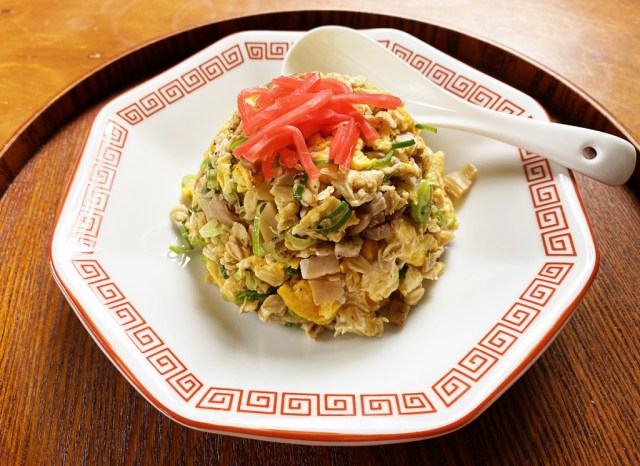
Fried rice without rice might sound like fried nothing, but our chef shows that nothing is impossible.
Our Japanese-language reporter Go Hatori has worn a lot of professional hats in his adult life. He spent a number of years working for one of the world’s largest IT companies for example, and even now he moonlights as a manga artist.
By comparison, the three years he spent working as a short-order cook were less glamorous, but it was still an important part of his life. In particular, he’s got fond memories of the restaurant’s owner teaching him how to make fried rice, and the other day he found himself craving its nostalgic flavor. There was just one problem: he didn’t have any rice in the kitchen.
Now, to most folks, not having any rice is a pretty major roadblock as far as making fried rice goes. Go, however, wasn’t going to give up so easily, and as he looked around his kitchen, his eyes fell on a container of oats.

Recently, Go’s been spending a lot of time imagining their potential uses beyond plain old oatmeal, and so he decided to find out if oats will work as a rice substitute for making fried rice.
His single-serving ingredients were:
● Oats (30 grams/1.1 ounces, approximately 5 tablespoons)
● Chashu pork (2 slices)
● Eggs (2)
● Menma/fermented bamboo shoots (35 grams/1.2 ounces)
● Green onions
● Vegetable oil
● Salt
● Pepper
● Aji no Moto-brand MSG
● Pickled ginger
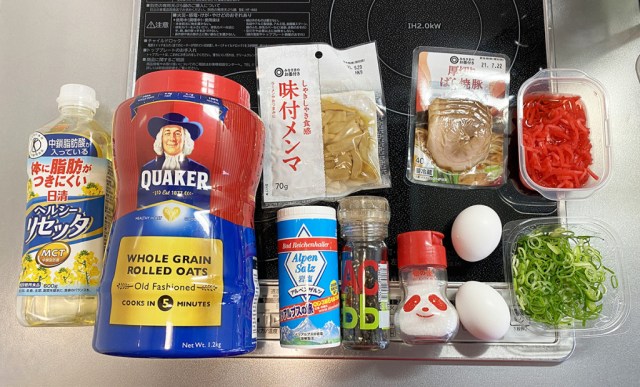
Of course, as always with fried rice, you can really use whatever ingredients and seasonings you want, but that’s what Go’s restaurant boss taught him to use (except for the oats, that is).
Step 1
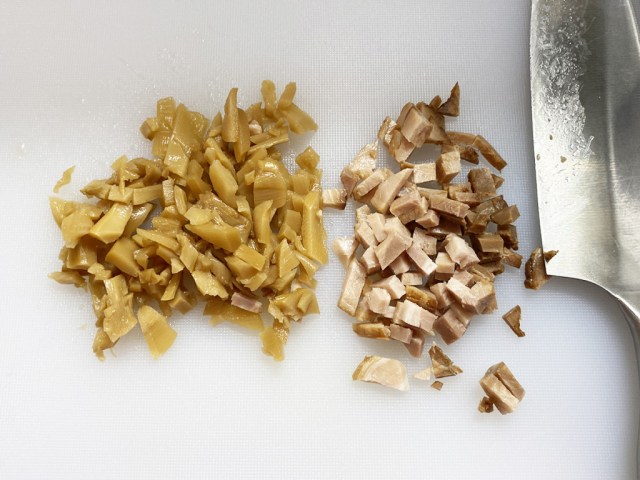
Slice the pork, bamboo shoots, and green onion
Step 2
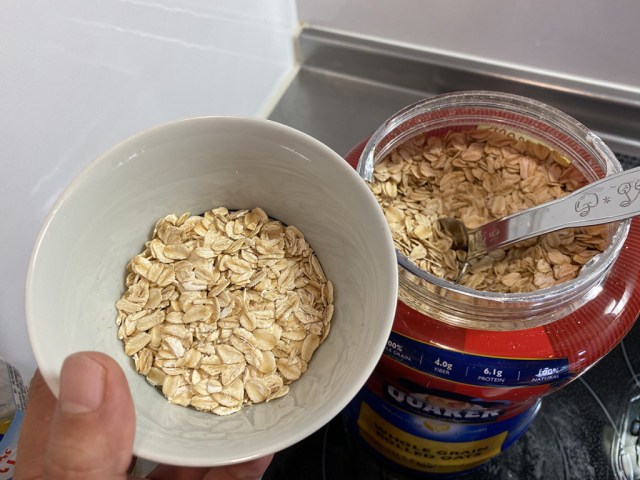
Scoop the oats into a bowl (we’re going to use this bowl again later on, by the way)
Step 3
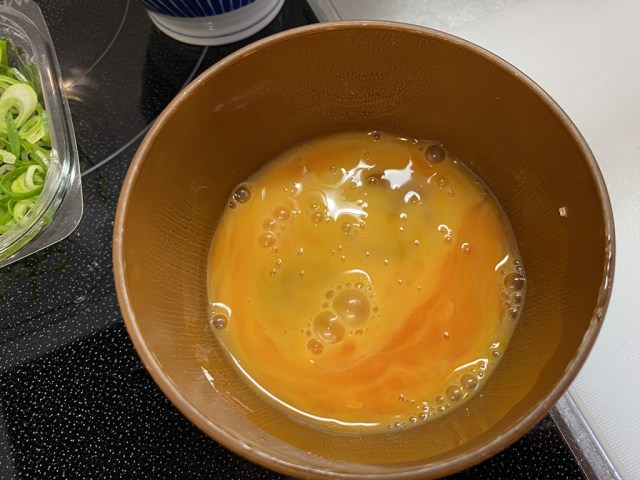
In a separate bowl, beat the eggs.
Step 4
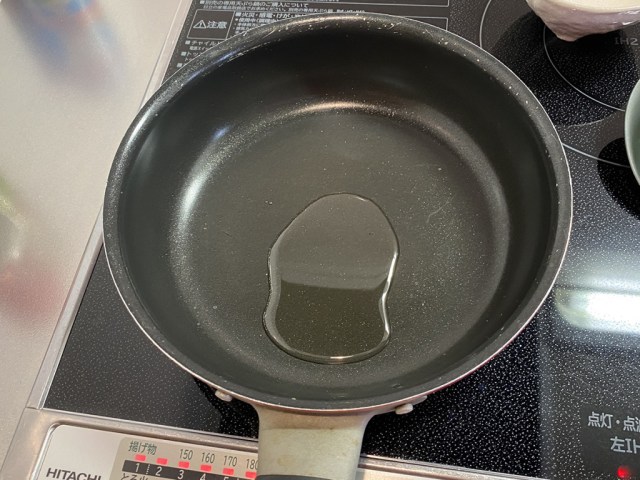
Oil up a frying pan and turn on the heat to high.
Step 5
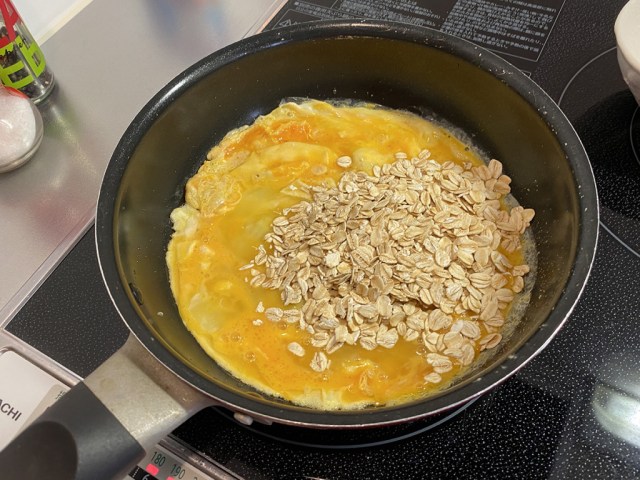
Once the pan is heated up, pour in the eggs. Right away, toss the oats in over them, and give everything a few good stirs as they start to cook.
Step 6
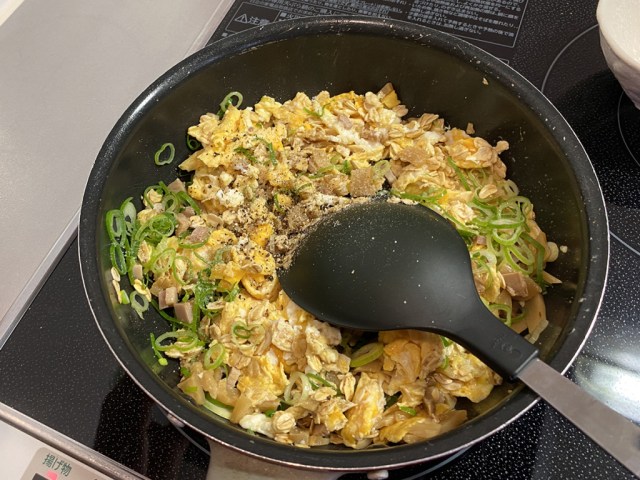
Add in the pork, bamboo shoots, and green onion and stir-fry everything together. While you’re at it, sprinkle in a dash of the seasonings, but not too much, since it’s the bamboo shoots and pork that are going to do the heavy lifting in terms of flavor.
Step 7
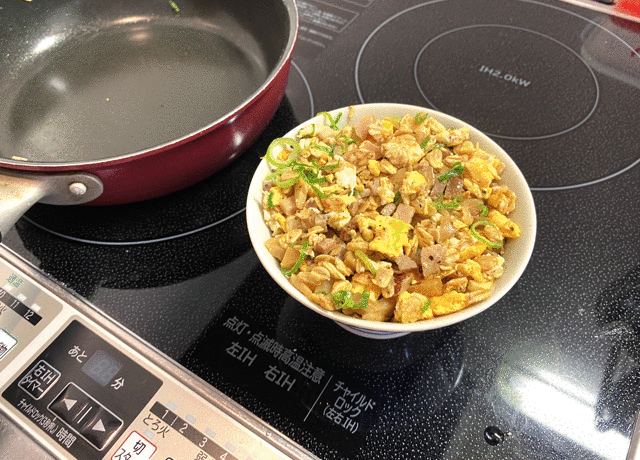
Remember how we said we were going to use that first bowl again? As a former professional cook, Go insists that presentation is important, so when the cooking is finished, transfer everything from the pan to the bowl and then, with a single swift flick of the wrist, flip it onto a plate, where the arrangement will have a mouthwatering sense of height to it (also, while it won’t affect the flavor, 99 percent of cooks in Japan will tell you that fried rice should, ideally, be served on an octagonal plate).
Step 8
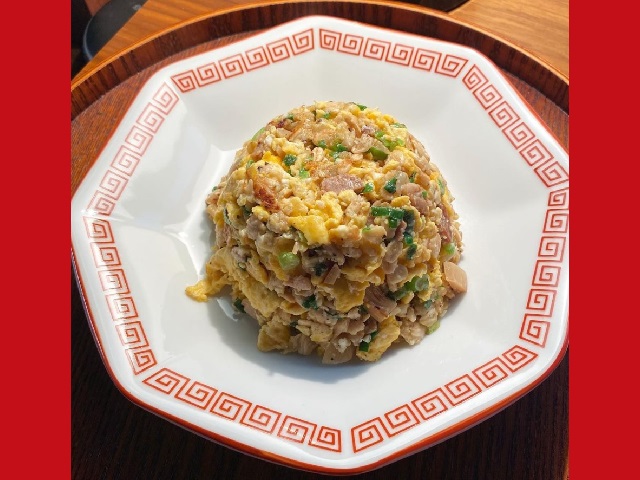
Finally, garnish with pickled ginger to add some eye-catching color.
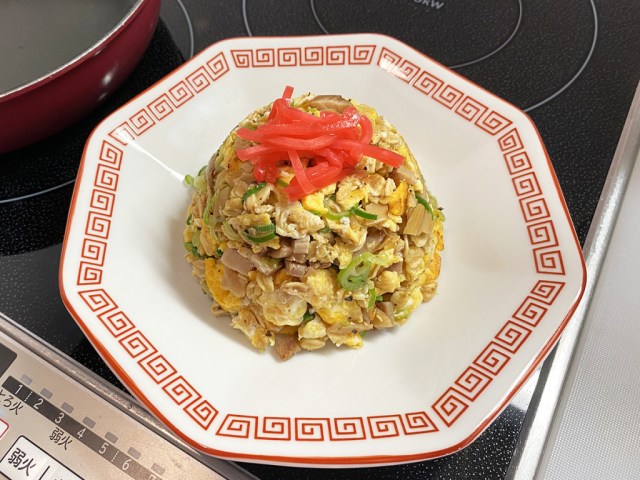
At the risk of bragging, Go has to say that he was thoroughly impressed at how much his fried oats looked like fried rice. But how do they taste?
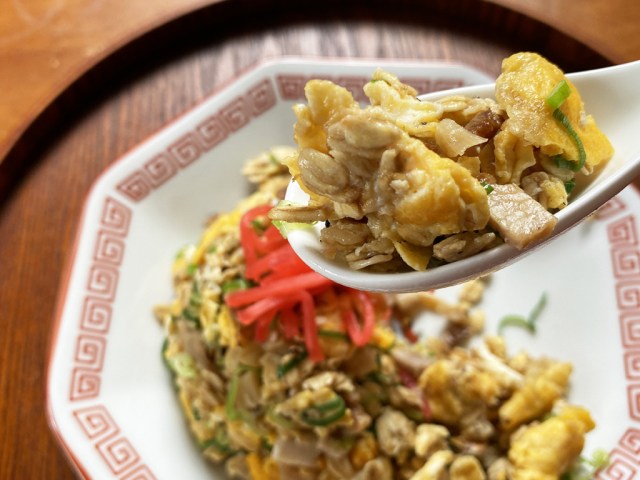
Surprisingly close to fried rice! The gustatory resemblance isn’t quite as strong as the visual one, but since the rice itself is the mildest part of fried rice’s flavor profile, simply swapping in oats while leaving everything else the same means the other ingredients and seasonings are working just as well together as they usually do.
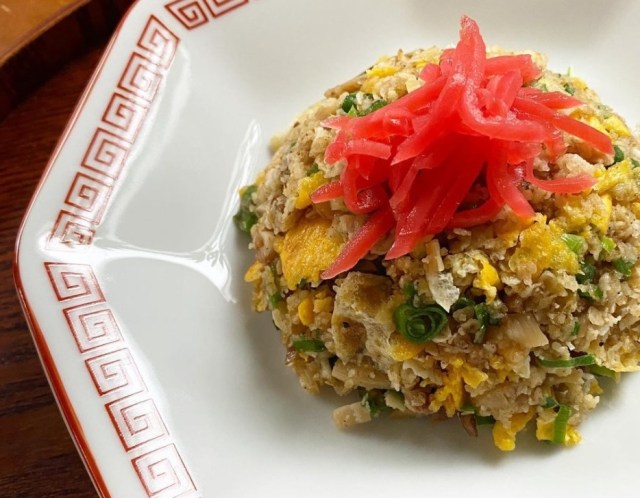
So in the end, fried oats really do get the job done, Go says, and if you happen to have some leftover tempura lying around, you could make them even better.
Photos ©SoraNews24
● Want to hear about SoraNews24’s latest articles as soon as they’re published? Follow us on Facebook and Twitter!

No hay comentarios:
Publicar un comentario